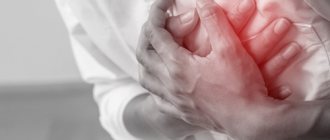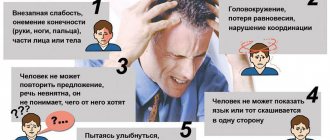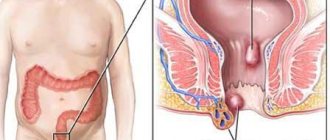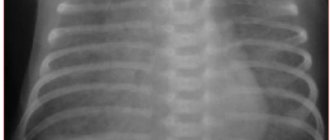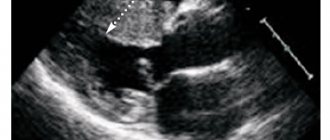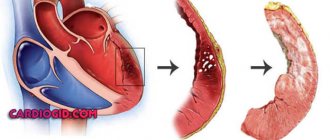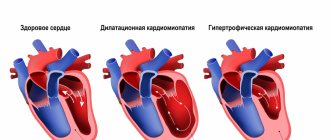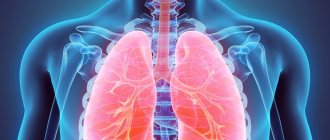Dyshormonal cardiomyopathy is a non-inflammatory lesion of the heart muscle, which develops due to a lack of sex hormones and is accompanied by a violation of the electrophysiological and mechanical functions of the heart. The peculiarity of this disease is that structural changes in the myocardium are caused not by inflammatory processes, but by changes in hormonal levels.
More often, this disease is detected in people who experience hormonal changes during menopause or during puberty. According to the observations of specialists, women aged 45-50 years are more susceptible to dyshormonal cardiomyopathy and, according to statistics, such a diagnosis is detected in 85% of cases in the fair sex at this age. That is why the term “menopausal cardiomyopathy” is often used.
Why does this disease develop? How does it manifest itself? What diagnostic and treatment methods are used to eliminate dishormonal cardiomyopathy? After reading this article, you will find answers to these questions.
Causes
Sometimes dishormonal cardiomyopathy develops as a result of prolonged use of hormonal drugs.
The main cause of myocardial damage in dishormonal cardiomyopathy is a significant and prolonged disruption of hormonal levels. More often, such fluctuations in sex hormones occur during menopause or adolescence. However, in some cases, hormonal imbalance is provoked by other factors and diseases:
- long-term use of hormonal drugs for the treatment of hormone-dependent diseases of the kidneys and other organs, connective tissue diseases - in such cases, hormones are taken for years or for life, and their intake negatively affects the production of one’s own sex hormones;
- diseases of the ovaries and testicles - damage to these organs leads to a decrease in the level of sex hormones;
- diseases with excessive function of the thyroid gland and pathologies of the adrenal glands - disturbances in the production of these hormones lead to hormonal imbalance;
- obesity in men - with excessive accumulation of fat in the body, the level of estrogen increases, disrupting the functioning of the heart;
- prostate tumors – these tumors disrupt testosterone production and lead to hormonal imbalance.
When hormonal imbalances occur, the metabolism of fats, proteins and carbohydrates changes. As a result, the myocardium does not receive enough substances necessary for its normal functioning (fatty acids, glucose, microelements), becomes depleted and ceases to function properly.
Forecasts
As medical statistics convincingly prove, this disease is quite possible to cure even at a severe stage, not to mention the initial one. In the vast majority of case histories, the prognosis is favorable; extreme outcomes are rather the exception. Therefore, the main thing for the patient is not to panic when heart pain appears, since most often such pain syndromes are not directly related to his work and do not threaten a person’s life at all. Sustained optimism is one of the main trump cards in the fight against any disease.
Symptoms
The main manifestation of dishormonal cardiomyopathy is sudden pain in the heart area, which is stabbing or aching in nature. Pain can occur both during exercise and at rest. Sometimes they can radiate to the left shoulder blade or jaw. The duration of pain can vary from several hours to several days. According to specialists, these painful attacks most often occur in the spring or autumn. Patients note that the pain becomes stronger at night and decreases during the day. Painful sensations are eliminated independently or stopped by taking sedatives (for example, valerian, motherwort, etc.) or Valocordin.
In addition to pain, patients with dyshormonal cardiomyopathy have the following symptoms:
- rapid heartbeat - attacks of tachycardia are not associated with physical activity and usually occur after excitement and stressful situations, sometimes palpitations begin at night (i.e., not provoked by visible causes);
- surges in blood pressure - pressure readings can increase by 10-20 mmHg. Art. and are accompanied by headaches, rapid pulse, weakness, sensations of heat in the body and face, especially often this symptom occurs in people prone to arterial hypertension;
- shortness of breath - this symptom is especially often observed in women, it occurs against the background of excitement or physical activity, appears due to functional or psychogenic reasons and is not associated with disturbances in the functioning of the heart.
Dyshormonal cardiomyopathy is accompanied not only by cardiac manifestations. Against the background of changes in the functioning of the heart, patients have the following complaints caused by autonomic and hormonal disorders:
- dizziness;
- increased sweating;
- tides;
- feeling of a lump in the throat;
- noise in ears;
- fast fatiguability;
- sleep disorders;
- memory impairment;
- increased anxiety;
- irritability;
- sudden mood swings;
- depressive states;
- chills;
- pallor;
- feeling of coldness in the extremities;
- numbness of the limbs.
In men with dyshormonal cardiomyopathy, urination disturbances occur, libido and potency decrease.
In some patients, in the initial stages of development of dyshormonal cardiomyopathy, the symptoms of the disease may be minor, and their severity increases over time. In other patients, signs of disturbances in the functioning of the heart are immediately pronounced and sharply worsen their well-being.
Taking care of the heart
Melissa…
I used to love summer very much: I sunbathed and swam with great pleasure. After 50 years, I began to have difficulty withstanding the heat. When the temperature went over 30 °C for several days in a row, I felt bad, I “felt” my heart. Every year my health worsened. I was looking forward to summer with anxiety, and I was no longer happy about it.
But three years ago I decided to change things and started taking care of my heart. I prepared this tincture .
The glass container was filled with clover heads to 2/3 of the volume and filled with a mixture of vodka and hawthorn tincture (1:1 ratio), purchased at the pharmacy. You can prepare hawthorn tincture yourself. The product was infused for 1 month.
Since early spring I took 1 teaspoon before meals 3 times a day for a month. I took a break for 10 days and took the medicine again.
I try to eat foods rich in vitamin E. For breakfast I eat nuts, raisins, and cheese. For dinner I often bake potatoes, sometimes stuff them with cottage cheese, salt and herbs, and sprinkle with grated cheese. I use potatoes with their skins, fortunately we grow them without chemicals.
I cook millet porridge with milk, raisins and honey in a clay pot in the oven. Such food strengthens the heart, improves sleep, and relieves swelling .
I add leaves and flowers of hawthorn, as well as strawberries, mint, and lemon balm to a mixture of green and black tea.
These simple changes in my life gave good results. I have become much easier to bear the heat, my health has improved significantly.
Diagnostics
During the examination of the patient, the doctor analyzes his complaints and clarifies data on concomitant diseases and family history. In addition, auscultation of the heart, measurement of blood pressure and pulse are performed.
To make a diagnosis, the following studies are performed:
- general and biochemical blood test - carried out to assess the general condition of the patient;
- blood tests for hormones - performed to identify abnormalities in hormonal levels;
- Chest radiography – allows you to determine the expansion of the borders of the heart;
- ECG (without pharmacological load and with inderal, ergotamine and potassium tests) - before the pharmacological test is performed, the electrocardiogram shows a decrease in ST, inversion of the T wave (it can be negative for a long time, then change to positive, and then again become negative without changes in the patient’s condition), extrasystole, arrhythmias, paroxysmal tachycardia, after a pharmacological test the indicators stabilize;
- Echo-CG - allows you to determine disturbances in the functioning of the heart and evaluate the structure of the myocardium.
If necessary, the examination of the patient can be supplemented with cardiac MRI.
To eliminate errors, a differential diagnosis of dyshormonal cardiomyopathy with other diseases of the cardiovascular system is required: coronary heart disease, myocardial infarction, etc.
Disease prevention
It is necessary to remember a wise truth: cardiomyopathy, like any other disease, is much easier to prevent than to treat later. That is why its prevention should be in the foreground for any person. In practice, this means systematic clinical examinations and constant monitoring of your well-being. At the first deviations from the norm, especially symptoms similar to those given above, you should immediately consult a doctor in order to prevent the development of the disease. First of all, this applies to those women and men who have entered menopause. Of course, you need to constantly lead a healthy lifestyle, which means a complete abstinence from hazardous foods, drinks, smoking and other bad habits, a balanced diet and normal physical activity to maintain optimal weight, etc.
Treatment
Women with dishormonal cardiomyopathy who are obese are advised to lose excess weight.
The goals of treatment for dishormonal cardiomyopathy are aimed at eliminating the causes of the disease and its consequences. All patients with this diagnosis are recommended to make the following lifestyle adjustments:
- give up bad habits (especially smoking);
- follow a diet with limited salt and cholesterol-raising foods, introduce foods rich in potassium and magnesium into the diet;
- normalize weight (for obesity);
- drink enough fluid;
- adhere to moderate physical activity;
- minimize stress factors;
- normalize sleep patterns.
The drug therapy plan includes the following:
- estrogen-containing drugs to level out the manifestations of menopause (preference is given to phytoestrogens);
- sedatives based on mint, valerian, motherwort, etc.;
- drugs to eliminate cardialgia: anaprilin, verapamil;
- metabolic correctors: Mildronate, Actovegin, Riboxin, etc.;
- means for the correction of electrolyte disturbances: Panangin, Potassium Chloride;
- immunomodulators and vitamins.
For heart failure, the treatment plan includes diuretics, cardiac glycosides, vasodilators, etc.
If there are diseases that provoke hormonal imbalance, the patient is prescribed treatment for the underlying ailment and observation by a specialized specialist.
The psychological state of the patient is of no small importance in the treatment of dyshormonal cardiomyopathy. The doctor explains to the patient that dishormonal cardiomyopathy can be successfully treated and is not life-threatening. If the disease develops against the background of physiological hormonal changes, then after its completion and adequate therapy, the manifestations of the disease will be completely eliminated. If necessary, to stabilize the patient’s psychological state, a consultation with a psychologist or psychotherapist may be recommended.
How to treat cardiomyopathy?
Since the pathology is caused by a combination of factors, its treatment requires an integrated approach:
- Correction of the daily routine.
- Drawing up a proper nutrition plan.
- Exercise therapy.
- Visiting a psychotherapist.
- Antipsychotics and antidepressants are often indicated.
- In severe cases, hormone replacement therapy is indicated.
If possible, patients are recommended to undergo sanatorium-resort treatment.
Self-medication in this case is absolutely prohibited. Traditional medicine recipes can only complement basic therapy, but not replace it.
Which doctor should I contact?
If you experience pain in the heart, surges in blood pressure, tachycardia, shortness of breath and deterioration in general health, you should consult a cardiologist. After conducting a series of studies (blood tests for hormones, general blood test, blood biochemistry, ECG, radiography, Echo-CG, etc.), the doctor will draw up a treatment plan and may recommend observation by a specialized specialist (endocrinologist, gynecologist, andrologist).
Dyshormonal cardiomyopathy develops against the background of an imbalance of sex hormones and is accompanied by changes in the myocardium and disturbances in the functioning of the heart. Most often, this disease is detected in women during menopause, but it can also be provoked by other causes leading to hormonal imbalance (endocrine pathologies, diseases of the ovaries and testicles, long-term use of hormonal drugs, prostate tumors). Treatment of dishormonal cardiomyopathy is aimed at eliminating the causes that cause it and disturbances in the functioning of the heart.
Possible complications
Complications are not excluded for any disease, especially in the case of such a complex disease as dyshormonal cardiomyopathy. If the patient feels a deterioration in his condition during treatment, he does not need to panic, since in such cases the situation is not at all hopeless. You should contact your doctor and, with his help, outline additional therapeutic measures, finding out, of course, the causes of the exacerbation. In the event of postoperative complications, the decision on subsequent actions regarding the patient will have to be made by the doctor or medical council.
Differences between ICMP and DCM
The clinical picture of ischemic cardiomyopathy is very similar to dilated cardiomyopathy. To provide a clearer picture of the differences between these diseases, I will provide information below.
Table: distinguishing features of ICMP from DCM
| Sign | ICMP | DCM |
| Patient age | On average 45-55 years | 30-40 years, can also develop in children |
| The main reason | Cardiac ischemia | Genetic mutations; Previous viral myocarditis; Alcoholism |
| Risk factors | Elderly age; Smoking; Diabetes; Obesity | Presence of DCM in close relatives |
| Development mechanism | Adaptation of the myocardium to ischemic conditions | Pathological expansion of the chambers of the heart |
| Dilation of the heart chambers | Only the LV undergoes significant expansion | Very pronounced dilation of all chambers of the heart |
| Severity of the clinical picture | Slow development of CHF symptoms | Rapid development of CHF symptoms |
| Arrhythmia frequency | 30% | Almost 100% |
| Thrombosis rate | 20-40% | 60-70% |
| Reversibility of changes | Partially reversible | Irreversible |
Do they do surgery?
Revascularization surgeries, i.e. restoration of blood supply to the myocardium is the most effective way to treat ICMP. Thanks to them, it is possible not only to prevent the progression of the disease, but also to improve the contractile function of the left ventricle.
There are 2 main methods of surgical intervention for ICMP:
- stenting - installation of a metal cylinder (stent) at the site of stenosis, which expands the lumen of the artery;
- aorto-coronary bypass surgery - the creation of an artificial connection (ostium) between the aorta and the coronary artery, due to which blood flows bypassing the narrowed areas of the vessels.
Prognosis for cardiomyopathies
With regard to cardiomyopathy, the prognosis is unfavorable: the steady progression of heart failure causes a high probability of arrhythmic, thromboembolic complications, as well as sudden death of the patient. According to statistics, with dilated cardiomyopathy, the 5-year survival rate is 30%. Systematic treatment can stabilize the patient’s condition indefinitely. There are also cases of exceeding 10-year survival after heart transplantation. Surgical treatment, for example, for hypertrophic cardiomyopathy, gives a positive result, but is associated with a high risk of death of the patient during or after surgery. Women who have been diagnosed with cardiomyopathy are not recommended to become pregnant, since pregnancy and childbirth are associated with a high probability of maternal death.
Changes in the heart muscle
What happens in the heart during ischemic cardiopathy? The organ gradually increases in size due to the expansion of the left ventricle (LV), its walls become thinner, and the ability to pump blood decreases. Myocardial cells are damaged, and in place of dead cardiomyocytes (in the case of a heart attack), scar connective tissue appears, which creates conditions for the occurrence of arrhythmias. The result is chronic heart failure (CHF).
The pathophysiological mechanism for the development of ICMP is based on a process called hibernation - switching the work of the heart muscle to an energy-saving mode. Due to atherosclerotic narrowing of the coronary arteries, the myocardium receives insufficient oxygen. Under conditions of ischemia, the organ deliberately reduces the force of contractions to reduce the need for nutrition. This is a kind of protective mechanism - this is how the heart protects itself from a heart attack.
